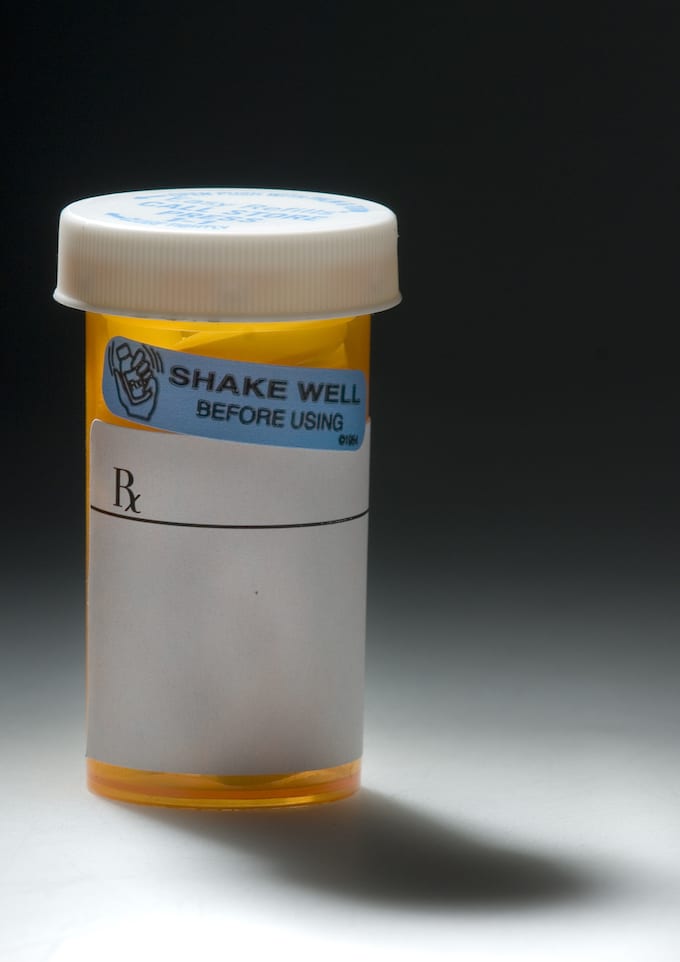
I’ve been wanting to tell this story for a while now. Mariah Carey, who announced Wednesday that she had been diagnosed with bipolar disorder in 2001, has given me the strength and reason to finally tell it.
In the fall of 2016, I went missing.
.@BAM_FI #MISSING 24+HRS 27yo Kiana Fitzgerald (@KianaFitz) last seen 10/5 #NYC #BRONX 157th/Melrose@ King's Deli contact @LaJethroJenkins 🙏 pic.twitter.com/8DDU02u9nc
I didn’t know it then, but I was in the middle of my first bipolar episode. Specifically, I was in the throes of mania, the state of extreme delusion that characterizes the high of bipolarism. I was freelancing, in between apartments, and crashing with a friend in the Bronx at the time because securing my own place wasn’t a priority.
My friend noticed I wasn’t myself, and stayed by my side throughout the weekend as I floated in the clouds of mania, seeking a conversation with God. But Monday came, and he had to leave for work. Before he left, he told me to try to go outside, get a bacon, egg and cheese sandwich from the deli next door, and come right back. It was something like a test of my ability to interact with the public. It didn’t go so well.
After retrieving, then abandoning, my bacon, egg and cheese, I somehow made it back to my friend’s building. But instead of heading to his apartment, I wandered the hallways, convinced I would eventually find my way to heaven. Seriously. I ended up attempting to enter a woman’s home to “help her,” and was promptly picked up by the mental health police. In the end, I was hospitalized for a month—but my family and friends had no idea where I was for the first 36 hours. Hence why I went “missing.”
MANIA feels like you're bursting at the seams with energy, in danger of spontaneous combustion if you don't dole it all out. It'S a high like you've never felt.
From the moment the episode started, every interaction I found myself in felt like a holy exchange. It was like I was being spiritually engaged through my surroundings. I would think about something specific, then it would seem to appear. I would think about someone, and they would immediately call or text. This would happen in rapid succession, effectively convincing me that a higher power was trying to lead me to a greater understanding. I was determined to reach as many people as I could, in the hopes of spreading this knowledge to everyone I encountered: for their sake, but mostly my own. Mania feels like you're bursting at the seams with energy, in danger of spontaneous combustion if you don't dole it all out. It is to be moved to the ends of the earth by pure passion. It's a high like you've never felt.
For the majority of my hospital stay—during which I was visited by friends, but not family, as they were in my home state of Texas—I remained manic. My family left me under hospital care because, it’s a hospital. They assumed I would get better, but I didn’t come down until well after I was released. That didn’t stop me from seeking answers as to why I was in a psych ward. I sat down for many a session with psychiatrists, nurses, and social workers, but not once did I receive a proper diagnosis. (When I contacted the facility, Lincoln Hospital, Thursday, a supervising representative said the current policy is to share the diagnosis, prognosis, and medication information with patients. They could not confirm what the policy was in 2016.) After a month of the hospital’s inconsistencies, and my plateau at the manic state, my family had enough and came to get me.
Back to Texas I went, with prescription drugs in tow. I found out from my family that I was being treated for bipolarism, a condition that likely affected my late mother, and currently affects my brother and grandmother. While I wasn’t personally familiar with the illness, I did know that meds were necessary to combat it. But they made me feel extremely tired—something that’s a major concern for people being medically treated for mental health reasons. People like Mariah Carey, who, after 17 years of living with bipolar II disorder (which comes with depression and less severe manic episodes AKA hypomania—I’m bipolar I, which involves full-blown mania), is finally ready to speak out about it. In a recent interview with People, the legend expressed the importance of accepting medical help.
“I’m actually taking medication that seems to be pretty good,” she said. “It’s not making me feel too tired or sluggish or anything like that. Finding the proper balance is what is most important.”
She couldn’t be more right. Jenifer Lewis, the actress who portrays Ruby on black-ish, also lives with bipolar disorder. When she was faced with medication, she said the following, per SELF magazine: “Bitch, please. I ain’t getting on that bullshit! I’m Jenifer Lewis! You think I’m gonna walk around like a fucking zombie? And y’all take my edge?! This is what I do!” After tripping through manic episodes for years, Lewis finally got with the program. She now understands and stresses the importance of taking medication, something I emphasize now, too.

But when I made my way back to New York last summer, I found myself off my meds. To be frank, I blamed the meds for everything. In addition to the energy drag I was experiencing, I was also having a severe allergic reaction and a huge increase in appetite, which led to a weight gain. I had no insurance and couldn’t find a psychiatrist and doctor to adjust my medication, so I just stopped taking it. It was my way of taking back my life and my body.
Ever since the episode in 2016, I felt like a stranger to myself. First came the mania, then came depression, the most fraying experience of my life. It was like the ground opened up and swallowed me whole. The happiness that seemed limitless before, became incredibly finite and measurable, something I had to parcel out. Life became a string of days where I just felt my way to neutral in the dark. Once I dropped the meds, I thought everything could just go back to the way it was before. I thought my diagnosis could even have been a mistake. “I didn’t want to believe it,” Mariah said about her initial confrontation with the disorder. It sounds so familiar now.
For about four months post-meds, everything seemed to be fine. I was working hard, building my portfolio here at Complex, and starting to feel like everyone else. But if there’s anything that you must come to terms with—as a person, but specifically as one living with a mental illness—it is that you are not like everyone else. You are you. You have your deck of cards to deal with, and the next person has theirs. Just because someone next to you is fine without medication and therapy doesn’t mean you necessarily are. I know that now. I just didn’t take it seriously then.
On the inside, I’m playing the greatest game ever created; on the outside, I’m befuddling and erratic.
Fast-forward to October 2017, and the ultralight beam of mania came bounding back into my life. I should have known what was happening and tried to stop it. But that’s the strange beauty of the highs of bipolarism: it feels like you’re soaring above everybody else. Eventually, you figure, they’ll come up and join you. But that’s not how life outside of mania works. Bipolarism isn’t a tag in, tag out, invitation-based experience. When you’re in it, though, it certainly feels like it can be. On the inside, I’m playing the greatest game ever created; on the outside, I’m befuddling and erratic.
And so, after having another manic episode, which was readily apparent at work and over the phone with loved ones, I was hospitalized a second time, for the second year in a row. It was there that a psychiatrist very clearly told me that I am bipolar, and there was no mistake about it. After another month-long stay, I found my way back to Texas, where I wondered how this could have happened to me, again. Me, the “normal girl,” the one who had her shit together, the one who held things down for everybody else. After sitting the fuck down and accepting my diagnosis, I came to the understanding that I’m the same person I was before this episode, the first one, and any other life-changing moment I’ve experienced. To be a human being is to evolve with the times, be they tumultuous or minute. This just so happens to be the way my life is playing out. Whatever direction it takes next, I’m better off controlling my circumstances as best I can.
Mariah told People, “Until recently I lived in denial and isolation and in constant fear someone would expose me.” Like her, my mental health battle has been extremely public. Going missing automatically opened my life up for others to investigate. Every social status posted, every photo that goes up is instantly critiqued by people who are both nosey and genuinely concerned: “Is she happy enough? Is she working too hard?” While fans and critics alike have been asking these questions about Mariah for decades, they’ll now be inquiring from an informed perspective, which will hopefully make any criticisms more informed, too.
Information is why I’m writing this now—so the next person can identify the similarities in their actions, and do something about it, instead of suffering in silence and confusion. “I’m hopeful we can get to a place where the stigma is lifted from people going through anything alone,” Mariah said. “It can be incredibly isolating. It does not have to define you and I refuse to allow it to define me or control me.”
By taking control of her own narrative, Mariah is not only directing her own future, but helping others to be honest about their respective situations. Her announcement elicited both supportive responses from empathizers and admissions from fans who are also bipolar—including me.
As someone living with bipolar disorder.... wow. Wow. Wow. Thank you, Mariah. https://t.co/Ed8r1lnGWq
In just two days, Mariah has made it okay for people like me to speak out in the hopes of normalizing a common condition. It took nearly two decades for her to finally come forward, which speaks to the negative stereotypes and assumptions associated with bipolarism. Hopefully, the knowledge that Mariah had been quietly coping with her condition for so long will make spectators rethink some of their critiques and dismissive attitudes that pegged her as a “diva” or, worse yet, “crazy.” While we’re here, the word “crazy” should be thrown out of the window when it comes to conversations about mental stability. Those of us maneuvering through mental health obstacles are still here on planet earth. We’re still sane. We’re just the statistical victims of off-kilter body chemistry.
Being bipolar doesn’t make me, Mariah, or insert name here, less than anyone else. We just happen to need a little extra attention. Medication and therapy are essential to keeping me grounded. Without them, I float back into the unsustainable heaven of mania. Without them, I’m unstable. But with them, I can plant two feet on the ground and assure my family, friends and colleagues that I’m good—and in time, minimize the public side-eyes that still come with bipolarism. Side-eyes that I routinely shake off now, but didn’t know how to handle initially. With them, I can hopefully inspire the next person to share their journey, just as Mariah has inspired me to share mine.

